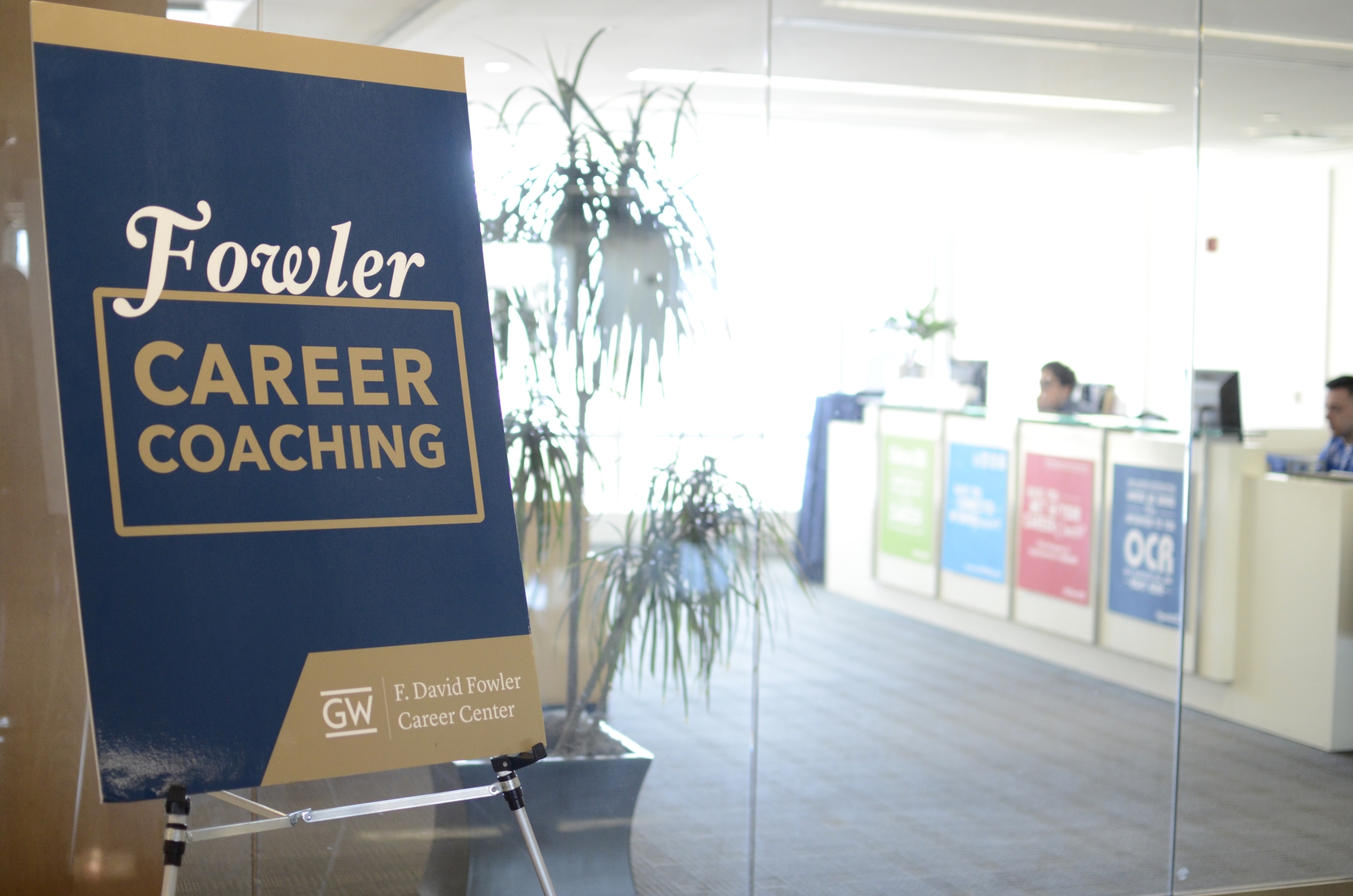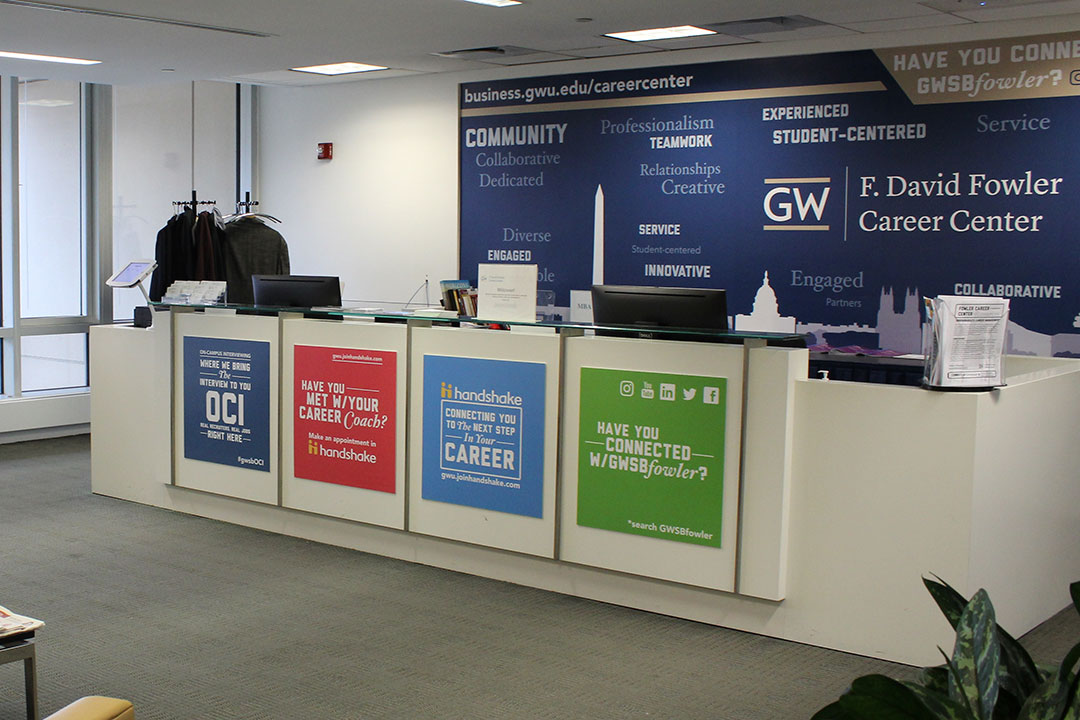Career Development
FORGING CAREER PATHS FOR FUTURE TRAILBLAZERS
Without the thorny logistics of travel to campus during the 2020–2021 academic year, greater numbers of students, alumni, and senior-level business leaders engaged with the F. David Fowler Career Center. Recruiters that previously bypassed GW became connected to the school through virtual technology. There were more job coaching sessions, more, larger and more diverse industry panels. And Global MBA interactions with the career center rose.
“Our ongoing business plan for the center is outcome-driven, and we've kept moving forward,” said Mark Strassman, Endowed Blaser Family Executive Director of the career center. “The beauty of what we pulled off is that we managed to provide more services than we did pre-COVID.”
As it switched to virtual work in tandem with the rest of the School of Business, the career center simultaneously extended its office hours to 7:00 a.m. through 9:00 p.m. on weekdays so students across 14 time zones could access mentors, career-building events, pro bono consultancies, and other services.
A record number of industry mentors and employers stepped forward. Information technology services company Capgemini alone put forward the names of 26 employees interested in mentoring and offered to host skills training workshops for students in the Fall. And the career center’s signature Communities of Practice — the rigorous no-credit program offering skill training, immersive experiences, and mentoring to equip graduate students for success in consulting careers — saw a dramatic jump in participation. Milinda Balthrop, associate program director of the Communities of Practice, said approximately 140 students took part in the full program, the largest group in its history. A record number of mentors also turned out.
Separate Community of Practice workshops during the fall 2020 semester also saw phenomenal participation levels. Balthrop said 942 participants took part in 24 workshops.
Students in the Communities of Practice typically take on pro bono consulting engagements that help private and nonprofit organizations solve business challenges. This year, for the first time, a government agency — the Department of Energy — was added to the lineup. In Fall 2021, owing to student requests and market demand, communities of practice in finance and security technology transition will be added to the program.
As COVID-19 disrupted the labor market, GW School of Business students joined the throngs of job seekers around the world who found employee offers rescinded and internships withdrawn. GWSB alumni also stepped forward to help minimize the impact. For example, Michael Quinn, a member of the GWSB Board of Advisors and the board’s executive committee, continued his commitment to the Quinn Fellows program to support students working in unpaid internships.
“Our collaborations [with alumni] gave rise to interesting possibilities like remote internships,” said Shivraj Kanungo, associate dean for Undergraduate Programs and associate professor of decision sciences. “People talk about how D.C. is a great place to intern, and we found you can still intern in D.C. when you’re sitting in San Jose. In many ways, we democratized the internship market.”
Even with the challenges facing businesses, the school managed to maintain its landing rates of 87 percent for graduate students and 88 percent for undergraduates. Landing rates, which play a role in business school rankings, measure how many job-seeking graduates become employed within a specific time frame.
Strassman acknowledged that “the chemistry and connection of being in the room with someone was lost” and that technology presented challenges. “But we got better at it and Zoom itself got better at it. Now we even have closed captioning, which is important to us because we value our inclusive and global culture,” he said.
Student organizations helped fuel drive some of the virtual connections. In partnership with the Black MBA Association, for example, the center’s annual Diversity Breakfast became a more ambitious Diversity and Inclusion Week packed with events and presentations. Black professionals from Amazon, L’Oréal, Facebook, and other companies talked about their corporate experiences while the Black MBA Association increased its visibility before students and recruiters.
Although the career center changed the way it brought people together, it did not step back from its high-impact outreach to students anchored by a seven-step Career Action Plan. It also continued to prioritize its for-credit Business Leadership Development Program collaboration with the Office of Undergraduate Programs. The program, embedded in the undergraduate curriculum, connects students to job experiences and gives them a leg up in networking in order to ensure job readiness.





